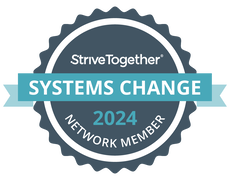The Need
SEWI CHILD CARE WORKFORCE
With support from KABA, the Southeast Wisconsin Workforce Development Board, and Gateway Technical College, BOF began convening a collaborative group and spearheading work that would begin to address critical issues in the child care sector in Southeast Wisconsin across Kenosha, Racine, and Walworth counties. This coalition lays the groundwork to invest in and align regional child care supports, expand the Wisconsin Early Education Shared Services Network (WEESSN) to the region, and significantly increase child care provider access to regional and state-level resources that would ensure thriving child care businesses, a high-quality child care workforce, and a strong network of support within the field.
|
BRIGHT SPOTS
|
WEESSN EXPANSION
Due to work that BOF convened in late 2021 around the child care workforce, the Wisconsin Early Education Shared Services Network (WEESSN) expanded to Kenosha, Racine, and Walworth Counties in 2022. A program of Wisconsin Early Childhood Association (WECA), WEESSN connects family child care providers and center-based child care programs together to benefit from shared resources, staff, and expertise. WEESSN offers a tiered level of services from simple information sharing in Tier 1 to deep collaboration in Tier 3. Any child care provider in Wisconsin is eligible to join Tiers 1 and 2, and Tier 3 services will soon be available to 40 child care programs in the Kenosha, Racine, and Walworth County region. |
"I joined WEESSN tier 3 and have been non-stop already getting support for my situation. I've been in an ocean drowning . . . and I feel that I've moved onto an island with the support I'm already receiving." |
The Parents Advocating for Child Care Fellowship challenges and engages the Kenosha community to be active, educated, and passionate about our child care system. It provides are community with resources, support, and a network of parents and professionals who want to make impactful changes in our child care system's availability, cost, and quality of care." |
WISCONSIN PARTNERSHIP
Through the Wisconsin Partnership, BOF joined with other local collective impact partnerships across the state—including Achieve Brown County, Higher Expectations for Racine County, and Milwaukee Succeeds—to identify and advocate for policy changes that will increase access to quality, affordable early childhood education for all children. Through the paid, 8-month Parents Advocating for Child Care (PACC) Fellowship, four Kenosha parents used their lived experience with the child care system to identify changes they would like to see and learned how to advocate for those changes. Fellows learned key advocacy skills, met with local and state-level legislators, and advocated for more equitable policies. This advocacy contributed to meaningful investment in child care affordability in the 2021-23 state budget by way of a $29 million increase in funding for the Wisconsin Shares child care subsidy for low-income working families. Prior to this increase, the maximum Shares rate was enough to cover the full cost of just 35% of child care slots statewide. With this increase, the maximum Shares rate now covers the full cost of 80% of child care slots statewide. 
Curious to learn more? Hear directly from our PACC Fellows--in our Together, We're Better podcast episode, "Parents Advocating for Child Care."
|
|
WISCONSIN INFANT-TODDLER POLICY PROJECT Building off previous community engagement work focused on early childhood, including five virtual screenings of the documentary “No Small Matter” in 2020, BOF partnered with the Wisconsin Partnership and the Wisconsin Early Childhood Association (WECA) to elevate the Wisconsin Infant Toddler Policy Project (WITPP) to community stakeholders through a State of Child Care event. At this event, Kenosha County community partners from multiple sectors—including healthcare, higher education, economic development, and others—heard from a PACC Fellow and learned about key policy actions they could take to urge state investment in child care. Follow-up action opportunities were offered to participants to take up to influence policy shifts. LEGISLATIVE VISITS BOF hosted an employer listening session with Congressman Bryan Steil, in partnership with the Wisconsin Early Childhood Association (WECA). Kenosha County employers—including Frontida, the Kenosha Area Business Alliance, Jockey International, and Johnson Financial Group—leveraged local data on child care access and affordability compiled by BOF, shared how the child care shortage is impacting their ability to recruit and retain workers, and highlighted the current child care challenges that are hindering parents' ability to work. |
|

